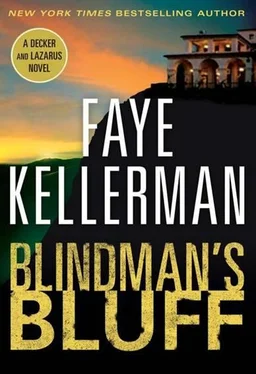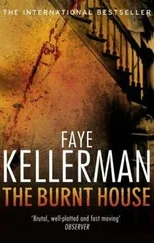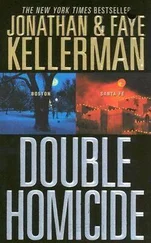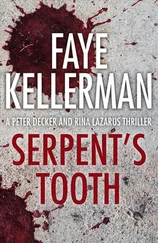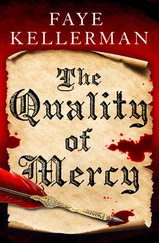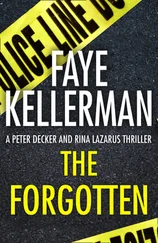“I wouldn’t even hazard a guess,” Rina said. “Peter’s worked on cases that were solved within twenty-four hours, and the flip side is the cold cases that have been going on for years.”
“Anything good?” Joy asked.
“What kind of a question is that?” Kate said. “I’m sure it’s all very tragic.”
Rina smiled. “You know, Joy, when Peter and I first got married, I tried to pry stuff out of him because I was as curious as you are. Now, to me his job is just a job. It pays the bills, and sometimes it gets in the way of doing what we want to do. I mean, you’re married. What do you and your husband talk about?”
“My husband’s a CPA,” Joy said. “What are we going to talk about? Tax deductions?”
Rina paused, but there was a twinkle in her eye. “You know, I just inherited some paintings that might be of significant value. Do I have to pay a gift tax on them or only if I sell them?”
“I’m a respiratory therapist. Why would I know about that?”
“That’s the point, Joy,” Kate said. “She’s a teacher. What does she know about murder?”
“Yeah, but there’s a big difference,” Joy said. “When Albert starts talking about numbers, it puts me to sleep.”
Rina said, “I have the opposite problem. When Peter starts talking about the evils of mankind, it keeps me awake.”
LEANING AGAINST THE wall, he slowly unwrapped a peanut power bar, his brain absorbing the cacophony of clatter. It was nearing the time when the courts reconvened and that meant noise coming at him from all directions. Across the way, two women were discussing bread recipes. One was from the Michigan area. She was older, in her sixties judging by the rhythm and deliberation of her speech. The second was a young Valley girl with a cowboy twang, reminding him that once California was the Wild West. The din increased as the crowd filed in.
To his right was a woman who was on the Fernandez trial. He had heard her voice as the jury panel left the room even though she had been whispering. As he overheard her speak into her cell, he knew instantly that she was talking to her husband or a boyfriend. Although her language was clean and innocuous, her tone was full of sexual innuendo. The way she laughed and riposted. He imagined her to be a map of sensual curves. She sounded like she was clearly born and bred in L.A.
He took a bite of his bar and waited for court to resume, the noise level growing exponentially as people congregated in the courthouse hallway, sound waves bouncing off the hard interior surfaces.
The open space had cement floors and wooden walls without a stitch of carpeting or upholstered furniture to absorb the racket. The only things to sit on were butt-breaking benches. He didn’t feel like sitting. He sat around enough as it was.
If he paid attention, he could hear well.
To his left were two Hispanics: one from Mexico and the other from El Salvador. They were speaking in what they thought were hushed tones, but his ear was so attuned to the nuance of speech, they might as well have been shouting through a loudspeaker. They were jabbering on in rapid-fire Spanish about the news, specifically the horrendous murders in the West Valley. He had heard several different renditions of that story about the billionaire developer, his wife, and his son gunned down in their multiacre ranch.
How freakin’ ironic was that? All that money and the poor schmuck couldn’t buy himself some loyal security. But that was the problem with money. It attracted all sorts of misfits and cretins, but usually small-time con artists didn’t murder. In his limited experience, homicides of big shots were done by other big shots-respectable people in deep shit with something dear to lose.
He continued to eavesdrop on the Spanish conversation and chuckled to himself. The two bozos kept calling Guy Kaffey, the slain billionaire, Señor Café-which translated into English as Mr. Coffee. Like the guy was a small appliance. As the men continued to talk, their voices dropped a notch. To him, it was strange that the two men were attempting a private conversation, but they clearly needed to talk. He could hear the urgency in their voices. And they probably had to be in these hallowed hallways-as witnesses, defendants, or plaintiffs. People didn’t hang around for the commissary food.
There were strict rules for jurors on overhearing conversation revolving around current cases. That kind of eavesdropping could influence outcome. But he felt there was nothing wrong with listening in on casual conversation.
The woman on his right had hung up her cell phone. She sounded like she was now going through her purse. Her rifling was almost drowning out the Spanish conversation, which was becoming so inaudible that he was actually straining to make out the words. Not that their yapping was important to him, but now it was a point of pride.
Like the limbo song-how low can you go?
They were still talking about the Kaffey murder, and something about the intensity of the conversation drew his interest. Ever so slightly, he turned his head in the direction of the sound to absorb a couple more decibels. His ears perked up as it became clear that the men were speaking about the killings from personal knowledge.
The Mexican was talking about a man named José Pinon who had gone missing, and el patrón, the boss, was looking for him in Mexico.
“Because he fucked it up with the son,” the Mexican told the El Salvadorian.
“¿Qué pasa?” El Salvadorian asked. What happened?
The Mexican’s voice was full of contempt. “He ran out of bullets.”
“Ay…estúpido!” the El Salvadorian said. “So why didn’t somebody else finish him off?”
“’Cause José’s a retard. He says he asked Martin to do it, but me? I don’t hear nothing about that. I think he’s covering his own stupid ass and he can kiss that good-bye. Martin is really pissed.”
The El Salvadorian said. “Martin es malo.”
Martin is bad.
“Muy malo,” the Mexican said, “pero no tan malo como el patrón.”
But not as bad as the boss.
The El Salvadorian agreed with that assessment. He said, “José es un hombre muerte.”
José is a dead man.
“Realmente Absolutamente Muerte,” the Mexican added. “Hora para que el diga sus rezos.”
Really dead. Time for him to say his prayers.
He heard a bailiff call out a jury panel, and the men stopped talking. The woman with the throaty voice had closed her purse and was walking away from him. Immediately, he turned on his handheld radio and began to follow her as she moved to the other side of the hallway. After a few moments, when he felt they were sufficiently far enough away from the two Hispanics, he took a big step forward and tapped her on the shoulder.
Abruptly, Rina turned around and found herself face-to-face with Sunglasses Tom. “Yes?”
“Excuse me,” he said. “My name is Brett Harriman and I work for the courthouse as a translator. I believe you’re on the panel of one of my cases.” When she didn’t answer him, he said, “I want to assure you that what I’m about to ask of you has nothing to do with that case.”
Rina stared at him and waited for him to continue.
“Um…this is awkward.” He paused. “I know that this sounds really odd, but could you do me a favor?”
Finally she spoke. “It depends on what it is.” Rina sized up the man. Brett Harriman née Smiling Tom seemed nervous. She couldn’t see his eyes under the sunglasses, but his demeanor was jumpy.
He dropped his voice to a whisper, but he still sounded like an actor. “Please, please. Whatever you do, don’t stare at the spot that I’m going to ask you to look at. And whisper, okay?”
Читать дальше
Конец ознакомительного отрывка
Купить книгу
